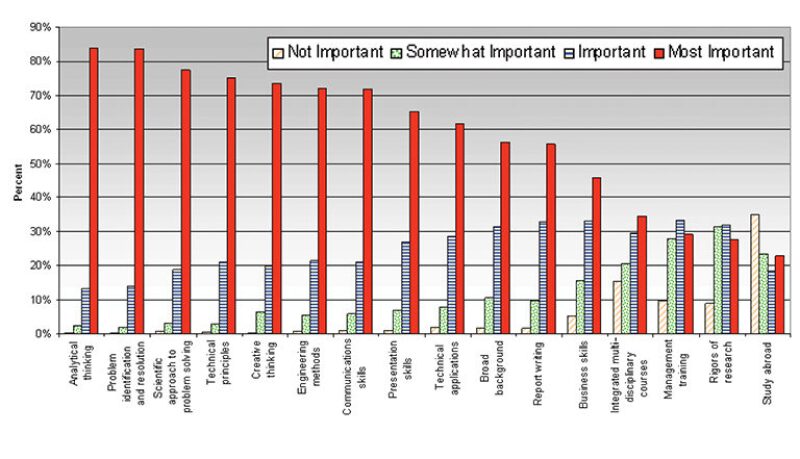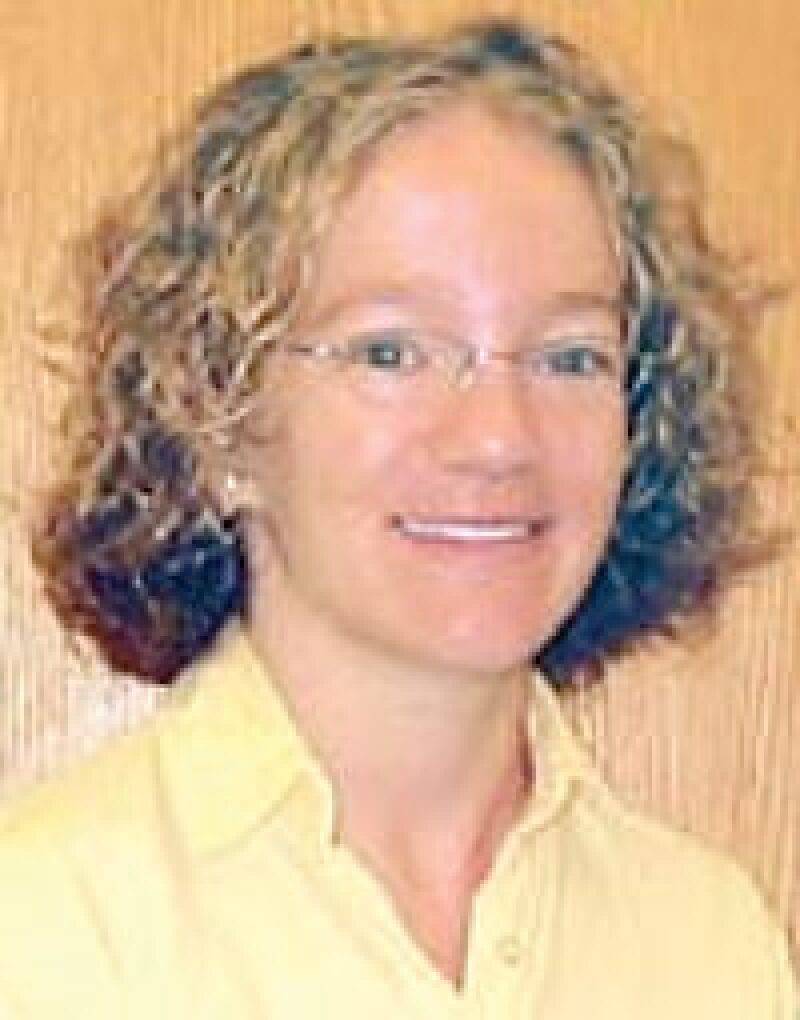One of the most eagerly anticipated presentations of the Sixth SPE Colloquium on Petroleum Engineering Education (CPEE), held in Colorado in August 2004, was the talk given by Jill Evans, Marathon, and Kelda McFee, Shell, on the results of a survey that they conducted of young SPE members. The colloquium was attended by representatives of both industry and academia. The 49 attendees included the current and a past SPE President, 11 university petroleum engineering department heads, and 5 industry presidents and vice presidents.
As members of the Gulf Coast Section Emerging Leaders Program (ELP), Evans and McFee volunteered to conduct the survey of engineers with fewer than 10 years’ experience. The survey was designed to determine:
- How prepared are engineering graduates for a career in the oil and gas industry?
- How well is industry preparing young professionals for their current job role and career development?
Of the 768 participants, 54% had degrees in petroleum engineering, 14% in mechanical engineering, and 12% in chemical engineering. The highest degree earned by 55% was a BS degree, and 30% had earned an MS degree. There is an increasing trend toward internships; 60% of the respondents with less than 1 year of experience had intern- ships. For those engineers working for diversified majors and independents, 85% of the engineers with less than 1 year of experience had internships.
According to the survey, the most important aspects in preparing a student for the working world (Fig. 1) are:

- Analytical thinking skills.
- Problem identification and resolution.
- Scientific approaches to problem solving.
- Technical principles.
The greatest inadequacies of engineering education, ranked by number of responses, in preparing new engineers for the working world were:
- Career management.
- Lack of hands-on field applications in education setting.
- Management and people skills.
- Financial skills.
- Courses were too theoretical.
In addition, respondents were asked which management and people skills they would like to have taken courses in. Results are shown in Fig. 2.

The most preferred teaching methods, ranked by number of responses, for university courses include:
- Real-world applications.
- Team projects.
- Field trips.
- Industry professionals as guest lecturers.
In retrospect, those being surveyed wished they had taken these college courses:
- Project planning.
- Petroleum engineering basics (for non-petroleum engineers).
- Petroleum economics.
- Reservoir engineering.
- Production engineering.
- Drilling engineering.
- Geology.
In summary, the following improvements to university education are recommended:
- More emphasis and classes on economics, business, and management.
- Increased real-world applications.
- More hands-on experience.
- Additional classes taught by professors with industry experience.
- More focus on teamwork and integrating various petroleum engineering disciplines.
- Increased usage and training on new technology and software.
- Enhanced associations with industry.
When responding to questions about training received while employed, there was high enthusiasm for combining training exercises with work responsibilities. Attending training that directly relates to one’s current work assignments is optimum. Off-site classes are preferred because they present fewer distractions from work assignments, but disadvantages include additional travel costs and time away from family responsibilities. Mentoring is important to career development, whether through formal assigned mentoring programs or informal “as needed” mentoring.
In many cases, the engineer and supervisor work together to establish training curriculum. The most common sources of training by employer type, as reported in the survey, are as follows:
- “Preauthorized curriculum of in-house training alone” ranked highest for national oil companies (NOCs).
- “Free to select from a combination of in-house or public courses” ranked highest for majors.
- “Select from public courses, conferences, or symposiums” ranked highest for academia.
- “Free to select from most any source that meets my training needs” ranked highest for independents, consultants, and government employees.
Engineers were asked how many days they spend in training each year:
- For the first year, groups with most days of training include NOCs (100%>15 days), majors (62%>15 days), and service companies (58%>15 days).
- For the group with 2 to 5 years’ experience, majors provided the most training (47%>15 days), followed closely by independents (42%>15 days) and service companies (41%>15 days).
- For the group with 6 to 10 years’ experience, NOCs led the employers (36%>15 days), followed by service companies (19%>15 days), independents (18%>15 days), and majors (11%>15 days).
Although the majority of respondents were satisfied with their current training, those participants who were not satisfied claimed that their respective companies offered little to no training. Reasons cited for lack of training include:
- Budgetary constraints.
- Employee does not have enough time.
- Company does not encourage training.
- Remote locations provide little access to training.
Fig. 1—Rate the aspects of your education in terms of importance in preparing you for your work assignments to date.
Fig. 2—Please indicate your level of interest in each of the following “business and people skills” courses if they were conveniently available.
Jill Evans is a reservoir/production engineer working west Texas and New Mexico assets for Marathon Oil in Houston. She is responsible for developing, evaluating, and preparing economic assessments for lease acquisitions, drilling proposals, farmouts, workovers, and well-optimization projects. Before her current assignment, she was employed as a reservoir engineer for ExxonMobil for approximately 4 years working inland Louisiana, offshore Mexico, and west Texas properties. Evans graduated with a BS degree in petroleum engineering from the U. of Texas at Austin. Evans is an SPE Gulf Coast Section ELP Board member and has been active in SPE since 1995.

Kelda McFee is a production engineer for Shell, currently working on production optimization in Petroleum Development Oman. She worked on two other projects at Shell before this assignment, including well servicing for south Texas high-pressure/high-temperature wells and completions for the deepwater Nigeria project, Bonga. She has been active in Shell’s recruitment program, hosting students during visits to Houston. She is on the board of the SPE Gulf Coast Section ELP. Before this, she served as President of the Colorado School of Mines (CSM) SPE Student Chapter and was awarded a scholarship from the Denver Section while attending CSM.
Susan Howes is Chair of the SPE Gulf Coast Section. She was awarded the SPE Distinguished Member Award in 2003 and the SPE Young Member Outstanding Service Award in 1997. As a high school student, she was awarded an SPE Gulf Coast Section scholarship. In her current role as Engineering Recruiting and Training Manager for Anadarko, she is responsible for engineering career development including both in-house training and external courses and conferences. She manages campus and experienced recruiting for engineers for Anadarko’s U.S. operations, as well as a multifaceted engineering intern program for students from precollege through graduate level. She has served on the Montana Tech


